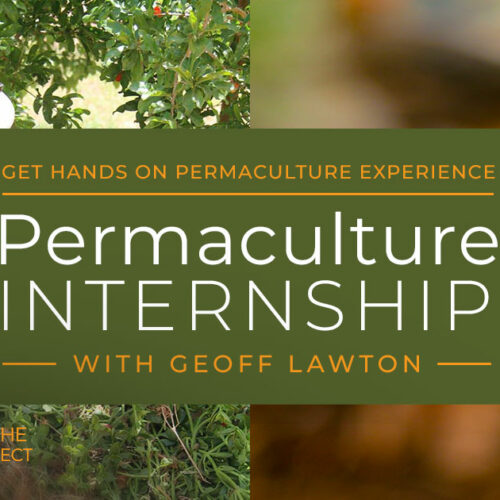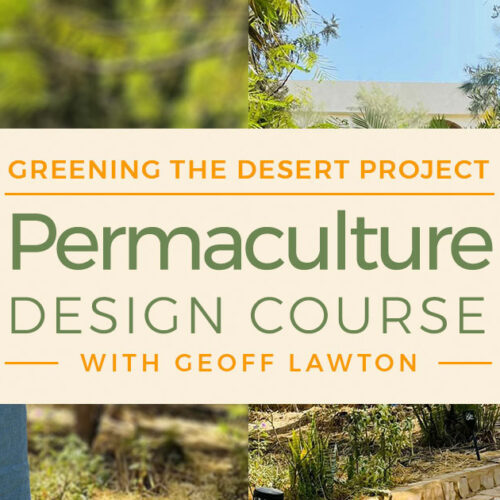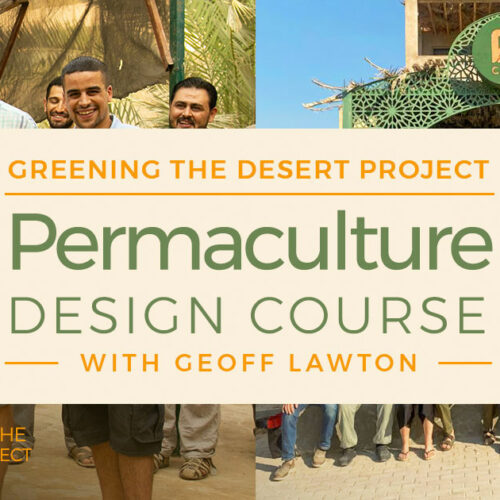We are not always available for farm tours so these must be booked in advance. Email Amatullah at education@permaculturenews.org with the date and time you’d like to visit and we’ll let you know if we’re available. Our tours normally take 1-2 hours and cost US$50 per person, or US$30 per person if there’s more than one of you. We prefer payment in Jordanian dinars or US dollars on site.
We’re on AirBnb. You can find us here. https://www.airbnb.com.au/rooms/30563020
We recommend arriving on site the day before the course starts. This gives you time to settle in and find your way around before classes start. Plan to leave the site, on the evening of the last day or the following day. If you’ll be arriving very late at night or very early in the morning, just drop us a line so we know to expect you.
We’re a busy bunch, staffed by a mix of paid and volunteer staff. We don’t have the capacity to give advice on your permaculture project or idea. We recommend using the forums here, getting in touch with your local permaculture group or doing a PDC.
Camping in a tent (that you bring yourself) is included in the course fee. We have communal bathrooms, kitchen and common rooms available for all guests.
If camping is not your style you can rent a room in our farmhouse (private single, with a travelling companion or to share with another student of the same gender). Please email for the latest prices.
There are also numerous accommodation options within a 20 minute drive of the farm. You’d also need to arrange a driver to drop you off and pick you up as there is no public transport close to the farm site.
We are sorry but we do not offer any tents, sleeping bags etc available for rent. you will need to bring your own camping gear with you.
Lunch, morning and afternoon tea is prepared and served on site each day of classes. Meals will be traditional delicious Jordanian dishes, using fresh local produce whenever possible. On the days off from the course you will need to prepare your own food
Yes, we can. We ask that you let us know in advance, and we offer vegetarian options at each meal.
Unfortunately, no. Some of our meals may meet your requirements, but we can’t make guarantees. We encourage people with specific dietary requirements to bring their own supplementary food, and use the communal kitchen to prepare it as necessary.
There are several small towns within a 5-minute drive (30 minutes+ walk) from the farm site. The nearest towns sell typical Jordanian food (fruits, vegetables, meat, beans, eggs, olives, flat bread, nuts etc) and Jordanian fast food (kebabs and felafel). If you’re looking for more international food (gluten-free, packaged foods etc) you can buy these at the supermarkets in Amman.
The farm site has separate male and female communal bathrooms, with composting toilets and hot showers. There is a communal kitchen with fridge, stove, plates, cups, pans etc. There is a common room/classroom with wifi, and an outdoor seating area.
Yes, there is. If you need it to be a particular speed you may want to get your own data through a Jordanian SIM card.
Jordanian SIM cards can be bought at the airport and in most towns. You will need your passport to buy a SIM card.
It is safest to drink purified water. We keep large bottles of purified water on site, so you can refill a water bottle or use the cups provided.
Yes, and we’d recommend doing that for some meals at least.
This one is up to you. Most people appreciate having a device with wifi connectivity to do research and stay in touch. Laptops are useful but not essential.
Clothes can be washed by hand on site. There are air-drying lines on site as well. Please use biodegradable washing detergent as the grey water goes back into our gardens.
In general, we recommend long loose clothing made of natural fibres. This keeps you protected from spines, spikes, burns and scratches, and keeps you cool.
We send out a specific packing list for each course about a month before the course starts. We also have a general list of what to bring in the course listing for each course.
Most Jordanians, especially in rural areas, dress conservatively. Men and women cover their shoulders, torsos and legs. We recommend visitors to the farm wear long-pants and long sleeves, of loose natural fibers that breathe. We also recommend bringing a hat, and sturdy, covered shoes.
International students are requested to be culturally sensitive to the Islamic traditions and Muslim social protocol of Jordanian society.
Some general Guidelines are:
- Have an open and receptive attitude toward cross cultural communication
- Willingness to ask questions whenever necessary
- Conservative attire is recommended
- Respecting cultural gender relations
- Sobriety at all times during the PDC course
- Respect for elders, religious traditions and practice, and community leaders
- Not photographing locals without permission, with cautionary emphasis on photographing local women and children
For men this would include:
- Respecting Muslim gender relation etiquette
- Wearing long shorts covering the knee
- Wearing shirts at all times
- Not touching or shaking hands with Muslim women without explicit permission
- Not displaying overly intimate affection in public with wife or partner
For ladies this would include:
- Respecting Muslim gender relation etiquette
- Long loose skirts or pants (Shorts are considered offensive)
- Wearing shirts at all times
- Not touching or shaking hands with Muslim men without explicit permission
- Not displaying overly intimate affection in public with husband or partner
When living in a community and on a farm that strives to be as sustainable as possible, the way in which you conduct yourself is very important. Below we have provided some guidelines to help you with your general conduct:
- Clean up after yourself and don’t leave personal items laying around.
- Remove your shoes before entering the farmhouse building.
- When you have finished at a workstation/power outlet unplug your laptops/mobile devices and make space for others who may need to use the facilities.
- Be conscious of the amount of time you spend in the shower & try to conserve water.
- Please use organic/biodegradable toiletries.
- Don’t leave the floor muddy/wet, make sure you leave the toilet seat/cover down. If any of the supplies have ran out or something is broken inform a member of staff.
- When storing food in the fridge please write your name and the date on all food items.
In general, Jordan is a very safe place to visit. People are generally hospitable. However, when visiting an unfamiliar place, it’s always best to use your own common sense, and be aware of cultural differences.
We appreciate that circumstances change. Please refer to our refund conditions which are detailed in the terms and conditions section of our website.
The Queen Alia International Airport in Amman.
Taxis are relatively affordable and easy to get from Amman or the airport. Some students have also used the rideshare App Careem. We set up a private Facebook group to help students coordinate travel plans and share transport to the farm.
Ultimately this is up to you. However, we would recommend our international students and visitors to have insurance for cancellation, medical expenses, personal accident, personal baggage, money and liability.
We do not provide any advice for vaccinations. Please speak with your Doctor or visit the WHO website. Due to the fact that we are an active farm, we do recommend that all visitors have a valid tetanus vaccination.
Some visitors to Jordan find the change in climate, water and food can affect their digestion and energy. We recommend drinking purified water, and using common sense in acclimitising to the weather. We also recommend bringing your own preferred treatment for stomach upsets, bug bites, and fatigue.
Many nationalities can get a 30-day visa at the airport. Unfortunately, we can’t offer advice in connection to your visa. Please contact your nearest Jordanian Embassy for the most up to date information and to find out if you need to apply for a visa before arriving at the airport.
Anything left behind on site will be held for a maximum of 4 weeks and will then be disposed of. If you think you have left something behind please contact us and provide a full detailed description of your item and where you think you left it, we will then confirm via email if the item has been found.
Your weekends are your own so you can do whatever you’d like. The Dead Sea, Petra, Aqaba and Amman are all popular weekend trips for students.
You can but there’s not much to see there, as the funding ran out more than 10 years ago now.
Jordan has hot dry summers, and cool winters. In November-December the weather is generally warm (25-17 degrees celsius) during the day and cool at night with possible rain. Thunderstorms, strong winds and rain are also a possibility. We suggest coming prepared for all these possibilities.



